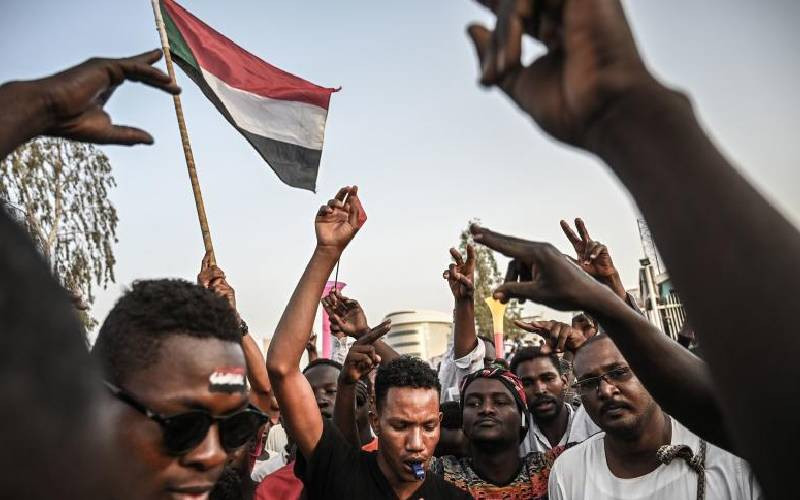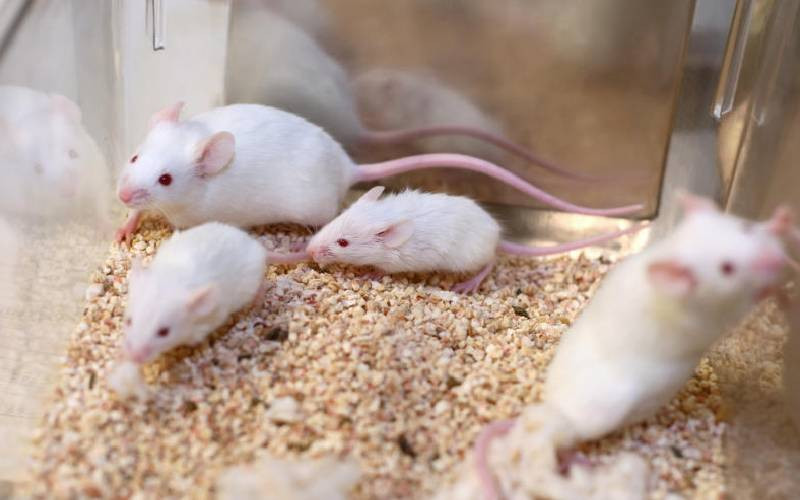
Orina* stands on the roadside at Kaptembwo in Nakuru, chatting on his mobile phone. Dressed in rubber shoes, the 21-year-old is calm and composed.
After the phone call, he crosses the road to buy a bottle of water at the nearby shop, where he is joined by a group of young men.
A police officer in plain clothes approaches the group to find out what they are up to.
As he interrogates the group, a charged crowd gets to the scene, shouting at the officer, prompting an argument that turns violent. A fight erupts.
"Stop harassment. We shall not allow you to intimidate us," shouts the crowd. This is a group of youths preparing for a demonstration against police harassment.
Orina who at first appeared calm can be spotted in the group, agitated. He actively participates in chasing away the officer.
Within minutes, the crowd pours onto the streets demanding to be addressed by the security team.
This is an example of mob psychology, where individuals come together leading to eruption on the streets. Property is destroyed, and innocent souls are killed.
Mob psychology describes how humans blindly follow the crowd and take on different manners, follow trends and buy merchandise based on their circle of influence.
In negative situations, this kind of thinking can have disastrous results but when positively directed or harnessed, it has historically been the source of many solutions.
According to the Corsini Encyclopedia of Psychology, mob psychology or crowd psychology is a branch of social psychology that deals with the ways in which the psychology of a crowd is different from the psychology of the individual persons who are the crowd.
Dr Edith Kwobah, a psychiatrist, explains that mob psychology is the concept of how people think and behave while in a crowd. Individuals in a crowd are influenced by the larger gathering, which makes them aggressive because they are dispirited.
"When individuals stop thinking as individuals and think like each other, and their judgment is impaired in that what the group or crowd suggests they do, they do it without questioning," she explains.
"You feel, you think, you behave. The problem is, when in a crowd, it is not your own thinking, it is not your own feeling, but a second and third person's," says the psychiatrist.
She adds, "There are things humans do from impulse, but not good consideration. And what happens in a crowd, is that humans are more impulsive, as compared to careful consideration."
Mob psychology is however not a mental problem according to Dr Kwobah though she notes that some individuals may be psychopaths, with a criminal tendency whereby they follow a leader without thinking.
"It (mob psychology) is an animal thing. Think of wild beasts crossing the river, they all tell each other to cross without thinking they can drown as they cross. It is an animal thing, where humans tend to pick things in the environment which they just follow without thinking," she says.
Dr Geoffrey Wango, echoes Dr Kwobah's sentiments, saying most people who suffer mob psychology are young people who are attracted toexcitement.
Wango adds that some people would like to join the crowd because they have genuine reasons, like university dons who feel aggrieved and want to show discontentment with status quo, or individuals on the streets who complain of injustices.
Also, we have a section of idlers who join the mob because they have nothing to lose.
"When people are in a group, they feel they are not responsible and it is an opportunity for them to misbehave, show disgrace, expressing themselves in a way they couldn't have done on their own," he says.
Mob psychology according to the psychologist is clustered into three categories: political crowd, sports, and politics. Other groupings include religion and education.
He explains that when people come together, they forfeit their individual thinking and think as a group.
"In a group, individuals can be logical and argue well, and atrocity like murder can be witnessed because they are no longer thinking critically as individuals," says Dr Wango. He says anybody within a group has an obligation to ask questions, get solutions and put out the fire, whereas others can commit atrocity leading to the massacre.
"In mob psychology, people can come together for a good cause, for example, to put out a fire, but can as well commit atrocity," he says.
Dennis* is among individuals who committed atrocity, by virtue of being in a group. The 16-year-old Form Two student was expelled, having been accused of torching a dormitory.
Preliminary investigations conducted by the school management and police revealed that Dennis was a ring leader of a team that torched the dormitory.
It is reported that the student smeared the dormitory floor with paint, and had other students lit a fire, burning the dormitory. Despite Dennis having admitted to being part of the crowd that lit the dormitory, his mother Beatrice* maintains he is innocent, and that he was deceived.
Dennis, according to her, is disciplined, having been raised in a Christian family.
"How would my son burn a dormitory? I have never seen him in bad company. My son is such a silent person, who keeps to himself most of the time, disciplined and God-fearing. I am pretty sure he was not involved," Beatrice says.
But according to Dr Wango, though Dennis might be innocent, he might have been excited by crowds that are always complex.
Crowds, he explains, may turn violent, with individual personalities becoming submerged in group mentality.
Crowds, or people in a crowd, are characterised by heightened emotionality, reduced intelligence, and critical judgment.
"Yes, we have individuals who are calm and composed while alone, but people or crowds are 'swept up', 'carried away' or 'infected' by the crowd or mob psychology," Dr Wango explains.
He say that although individuals are responsible for their thoughts and actions, opinions and attitudes, emotions, feelings, and behaviors, there is the concept of group polarisation.
He explains that group polarisation is based on the idea that like-minded people in a group reinforce one another's viewpoints.
As a result, group polarisation strengthens the opinions of each person in the group.
Group consensus induces a conviction in attitudes and behavior in which people are likely to adopt more extreme positions.
This, in turn, influences judgment, including uncertain opinions that if reflected back to individuals would certainly not conform to logic, our thoughts, values, and viewpoints.
"Crowd psychology has a lot of emotions in mediating the effects on the crowd, especially in political meetings including in campaigns," says Wango. "Crowd emotions have both direct and indirect effects, and this is manifested through the impact of the emotions they induce in individuals."
Crowd psychology is achieved chiefly through manipulation, including making the crowd believe what they are doing is right, timely, and for their overall good, for example stoning a criminal, as well as manipulating the tone, framing and targeting of messages.
An example of mob psychology is what is witnessed with protests happening across the country-political protests.
Wango explains that with the protests, leaders induce strong and specific emotions which are argued to have a direct effect on the turn-out, and moderating effect on the impact including behaviour and actions.
Additionally, individuals are also enthusiastic about certain actions, including their preferred opinion, party or outcome in that they have been experiencing fear, anxiety or anger in relation to a phenomenon.
"Though protesters want to send a message to the government of the day, one of the threats we are witnessing is the type of influence the crowd could take and have. In any case, only a few people within the crowd make informed decisions that other people conform to and follow.
This is why we are witnessing people burning tires along the road, stealing, and attacking police officers without fear," says Wango.
 The Standard Group Plc is a multi-media organization with investments in media
platforms spanning newspaper print
operations, television, radio broadcasting, digital and online services. The
Standard Group is recognized as a
leading multi-media house in Kenya with a key influence in matters of national
and international interest.
The Standard Group Plc is a multi-media organization with investments in media
platforms spanning newspaper print
operations, television, radio broadcasting, digital and online services. The
Standard Group is recognized as a
leading multi-media house in Kenya with a key influence in matters of national
and international interest.











